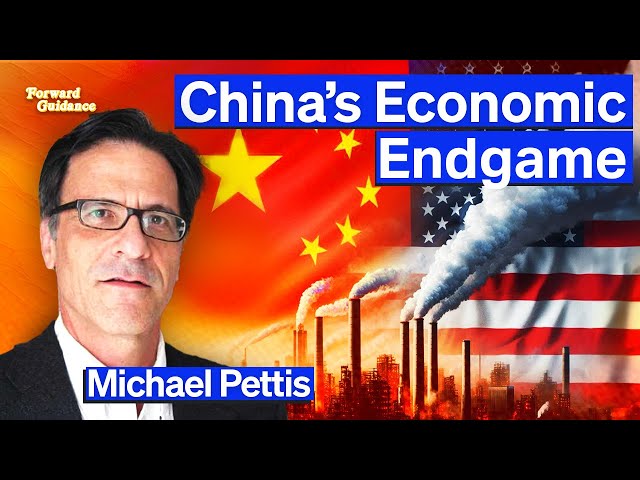Podcast Summary
In this episode of “Forward Guidance,” Marko Papic, Chief Strategist at Clock Tower Group and author of “Geopolitical Alpha,” discusses the integration of geopolitics into the investment process. He argues that geopolitical events are often mispriced by the market, creating opportunities for generating alpha. The conversation covers the ongoing conflict between Ukraine and Russia, the Israeli-Palestinian conflict, and the complexities of geopolitics in a multipolar world. The episode also touches on the U.S.-China trade relationship and the upcoming U.S. election.
Key Takeaways
Understanding Geopolitical Alpha
- Geopolitical Mispricing: Papic argues that geopolitical events are often mispriced by the market, leading to opportunities for generating alpha by capitalizing on overreactions. He emphasizes the distinction between getting geopolitics right and making accurate market predictions.
- Impact of Geopolitical Events: Major geopolitical events rarely have a long-term impact on large macro assets like the S&P 500, with the 1973 Yom Kippur War being a notable exception. Papic shares an example of his own misjudgment regarding the probability of Russia invading Ukraine in 2022, emphasizing the importance of a framework for understanding material constraints to conflict.
Analysis of Ongoing Conflicts
- Ukraine-Russia Conflict: The podcast discusses the ongoing conflict between Ukraine and Russia, with a focus on the implications for Ukraine, Russia, and Western nations. The host critiques the Ukrainian offensive against Russian-held territories, labeling it as rushed and ultimately unsuccessful.
- Israeli-Palestinian Conflict: The guest comments on the Israeli-Palestinian conflict, noting that historically, it has not had a significant impact on markets or spread beyond the immediate region. The possibility of the conflict escalating into a regional war is considered, with the guest suggesting that Israel might invade parts of Syria and Lebanon to create a buffer zone against militant groups.
Geopolitics in a Multipolar World
- Multipolar World Structure: The episode delves into the complexities of geopolitics, with a focus on the differences between bipolar and multipolar world structures and their implications for global conflicts. A multipolar world is messier, with shifting alliances and conflicts that do not necessarily lead to global wars.
- Great Power Definition: The definition of a great power is explored, with the host suggesting that the ability to pursue an independent foreign policy is a key characteristic of a great power.
U.S.-China Trade Relationship
- Trade Restrictions: The host suggests that the U.S. will continue to impose restrictions on investment and high-tech exports to China, but a complete breakdown in trade is unlikely due to the interconnected nature of global markets.
- Investing in Chinese Tech Companies: There is a discussion about the safety of investing in Chinese tech companies, with concerns raised about the return of investments to shareholders and the structure of foreign investments in China through entities in the Cayman Islands with variable interest entities.
Upcoming U.S. Election
- Trump’s Popularity: The conversation touches on President Trump’s enduring popularity, despite numerous lawsuits, with the guest referring to him as “Teflon Don” due to his ability to withstand controversies.
- Economic Influence: The economy is identified as a critical factor that will likely influence Trump’s future political standing, rather than the legal challenges he faces.
Sentiment Analysis
- Bullish: The podcast expresses a bullish sentiment towards the ability of investors to generate alpha by capitalizing on the mispricing of geopolitical events. The host also predicts a significant buying opportunity in Chinese markets within the next 12-18 months.
- Bearish: A bearish sentiment is expressed towards the Ukrainian offensive against Russian-held territories, which is labeled as rushed and ultimately unsuccessful. The guest also criticizes China’s efforts to build a navy, suggesting it is a strategic mistake.
- Neutral: The podcast maintains a neutral stance on the U.S.-China trade relationship, arguing that while the U.S. can focus on domestic production, it cannot completely decouple from China due to competitive pressures. The guest also expresses a neutral sentiment towards the upcoming U.S. election, noting the difficulty in predicting the outcome due to the potential influence of third-party candidates.












